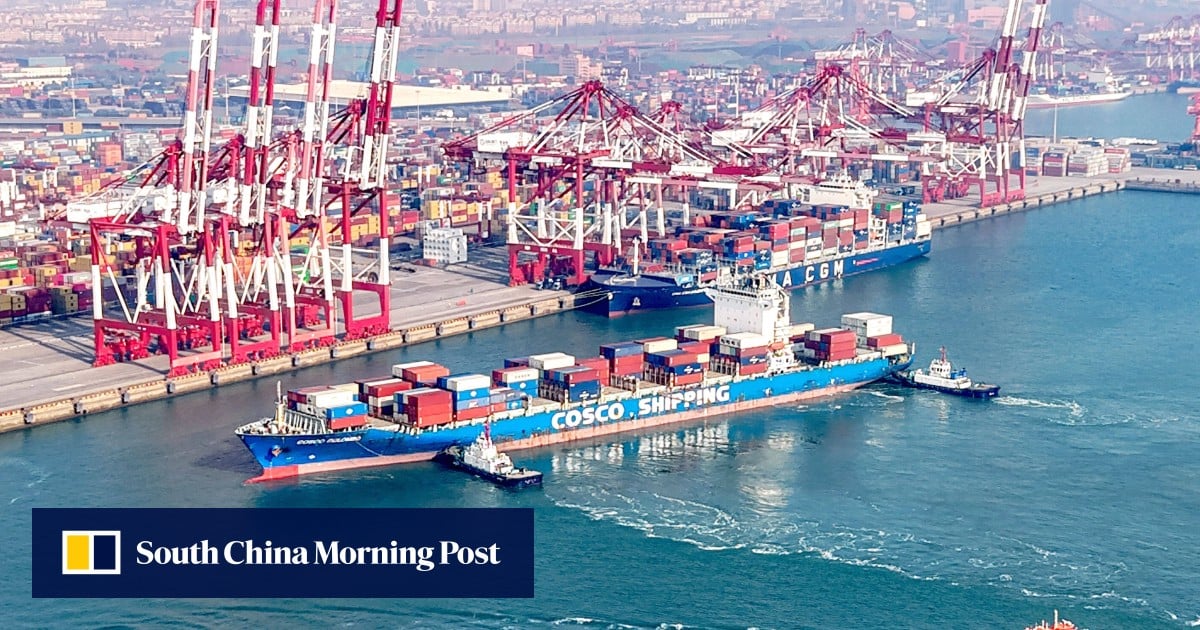
China Strengthens Commitment Amid Rising Global Economic Challenges
As the global economic landscape becomes increasingly complex, China is doubling down on its commitment to protect and expand its overseas economic interests. With mounting hurdles and uncertainties, this move signals a strategic effort to secure China's influence and ensure economic stability in a volatile world market.
The Significance of Overseas Interests
In recent years, China's economic reach has extended far beyond its borders, becoming a formidable force in the international market. The importance of safeguarding these overseas interests cannot be overstated. They are not only vital for sustaining China's economic growth but also necessary for maintaining geopolitical influence.
China's investment in overseas infrastructure projects, natural resources, and technological ventures is substantial. These investments serve as a backbone for the Belt and Road Initiative (BRI), enhancing trade and building stronger economic links with participating countries. By protecting its overseas ventures, China is ensuring the long-term success of its global economic strategies.
Rising Challenges in the Global Economic Environment
The world economy is currently facing unprecedented challenges. From geopolitical tensions to economic disruptions caused by the recent pandemic, uncertainties abound. These issues have given rise to protectionist policies in many countries, complicating international trade and investment.
In this climate, China faces multiple hurdles in protecting its overseas investments. These include trade barriers, political instabilities in host countries, and fluctuating currency values. Additionally, the global push for decarbonization presents new regulatory hurdles for Chinese energy investments abroad.
China's Proactive Response
In response to these challenges, China is implementing a series of measures to bolster its interests and influence on the global stage. The Chinese government has vowed to safeguard the security of its overseas personnel and assets by enhancing risk assessment and management capabilities.
One key aspect of this strategy is strengthening diplomatic ties with host countries. By fostering bilateral agreements and mutual cooperation, China is working to create a favorable environment for its investments. Engagement in multilateral forums allows China to advocate for open and fair trade practices, countering protectionist tendencies.
Leveraging Technology and Innovation
Innovation and technology play a pivotal role in China's strategy to overcome global economic challenges. By investing in advanced technologies, China aims to secure a competitive edge in the global market. This includes diversifying its technological footprint through partnerships and joint ventures with foreign tech firms.
Additionally, China is focusing on building resilient supply chains leveraging cutting-edge technology. The integration of digital solutions and data analytics helps Chinese businesses navigate complex international markets, ensuring operational efficiency and reducing vulnerabilities.
The Role of SOEs and Private Enterprises
State-Owned Enterprises (SOEs) have traditionally been the backbone of China's overseas initiatives. In the current economic climate, these entities are expected to play an even more crucial role. SOEs are tasked with spearheading strategic projects and investments across diverse sectors such as energy, infrastructure, and telecommunications.
However, the importance of private enterprises cannot be overlooked. Chinese tech giants and innovative startups are increasingly becoming agents of change in the global economy. Their involvement in international projects complements that of SOEs, creating a balanced approach to securing China's overseas interests.
Economic Diplomacy and Soft Power
China's efforts extend beyond mere economic strategies; they encompass economic diplomacy and the use of soft power to enhance its global standing. By engaging in cultural exchanges, educational programs, and humanitarian aid, China is building goodwill in regions where its economic interests are prevalent.
Moreover, China's participation in global initiatives, such as contributing to pandemic relief efforts, demonstrates its commitment to responsible global citizenship. Enhancing its image as a reliable partner on the world stage helps mitigate some of the challenges associated with international cooperation.
Challenges and Opportunities in Africa
Africa presents a unique set of challenges and opportunities for China's overseas ventures. With its abundant natural resources and growing consumer markets, the continent is a critical focus for Chinese investment. However, issues such as political instability and infrastructure deficits pose significant risks.
In response, China is prioritizing infrastructure development and capacity building in African nations. Through the construction of railways, ports, and power plants, China is not only securing strategic resources but also contributing to local economic growth. Collaborative projects and skills transfer initiatives also bolster regional relationships, reinforcing China's position in Africa.
Conclusion: A Path Forward
China's commitment to protecting its overseas interests amidst rising global economic challenges is a testament to its strategic vision and adaptability. The multifaceted approach China is adopting—ranging from diplomatic engagement and technological advancement to economic diplomacy—demonstrates a comprehensive effort to navigate an increasingly uncertain global environment.
As China continues to expand its international footprint, addressing challenges head-on will be crucial to sustaining its economic development. By leveraging innovation, fostering international cooperation, and strengthening its role on the global stage, China is poised to maintain its trajectory as a driving force in the world economy. This proactive stance not only benefits China but also contributes to global economic stability and growth, providing opportunities for nations across the spectrum.

